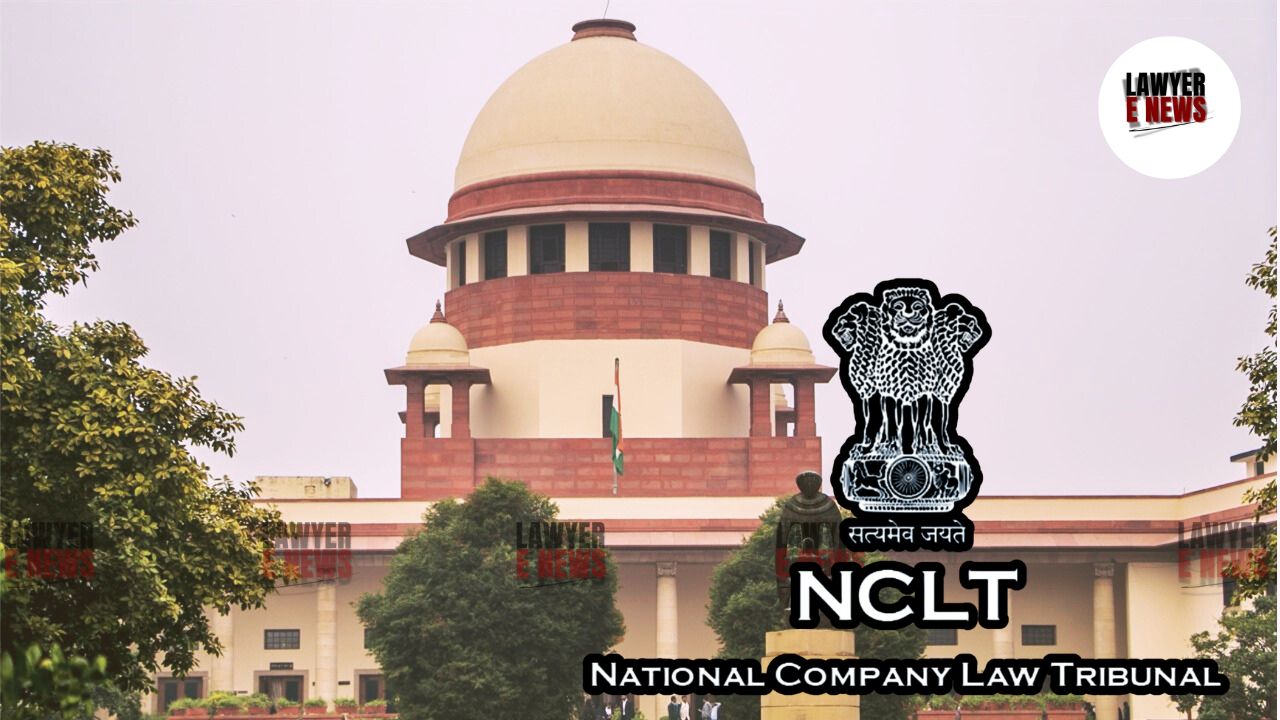-
by Admin
15 February 2026 5:35 AM



The Supreme Court of India, in a significant ruling, overturned the judgments of the National Company Law Tribunal (NCLT) and the National Company Law Appellate Tribunal (NCLAT), which had dismissed a petition challenging alleged fraudulent share transfers in Lexus Technologies Pvt. Ltd. The case, filed by Chalasani Udaya Shankar and others, involved claims of fraudulent erasure of shareholding records. The Supreme Court criticized both tribunals for failing to properly examine key evidence and ordered the NCLT to rehear the case on merits.
The appellants, Chalasani Udaya Shankar, Sripathi Sreevana Reddy, and Yalamanchilli Manjusha, had acquired a majority of the shares in Lexus Technologies Pvt. Ltd. in 2015 through a series of transactions with Mantena Narasa Raju, one of the original shareholders. The appellants claimed to have paid a total of ₹14.66 crore towards the acquisition of 94.8% of the company’s equity shares. However, in 2017, they discovered that their names had been erased from the company's Register of Members, and fraudulent filings had been made with the Registrar of Companies.
The appellants approached the NCLT, seeking rectification of the Register of Members and initiation of legal proceedings against the company’s directors for fraud and mismanagement. Despite presenting evidence, including share transfer deeds and certificates, their petition was dismissed by both the NCLT and NCLAT.
The Supreme Court found that the NCLT, in dismissing the appellants' petition, had ignored crucial evidence and dismissed the case prematurely without properly investigating the veracity of the claims. "Neither the NCLT nor the NCLAT examined, with any seriousness, the issues raised before them to come to a cogent conclusion," the court stated. The Supreme Court noted that the NCLT Acting President had failed to consider documents such as share certificates, transfer deeds, and emails, which indicated the validity of the appellants' claims.
The NCLAT compounded the error by accepting the version of the respondent, Mantena Narasa Raju, without any factual verification. The appellate tribunal assumed that the sum of ₹14.66 crore deposited by the appellants was not towards the purchase of shares, but rather part of another transaction involving a third party, L. Ramesh. The Supreme Court criticized this assumption as factually incorrect and unsupported by evidence.
The Supreme Court delved into the scope of rectification under Section 59 of the Companies Act, 2013, emphasizing that the NCLT has exclusive jurisdiction over rectification of records. "The word 'rectification' connotes something that ought to have been done but by error was not done, or what ought not to have been done but was done, requiring correction," the bench remarked, citing earlier judgments. The apex court noted that the NCLT had failed to perform its duty of verifying the evidence, particularly concerning the receipt of funds and the validity of the share transfer deeds.
The Court highlighted the importance of proper fact-finding in corporate fraud cases, especially where documentary evidence exists. "Questions of fact must be decided on the principle of preponderance of probabilities, giving due weight to the specific facts, as found," the judgment stated. The failure to scrutinize the documents provided by the appellants, such as original share certificates, was a key factor leading to the Court's decision to order a rehearing.
Justice Sanjiv Khanna, writing for the bench, remarked, “Neither the NCLT nor the NCLAT chose to labor over the actual issues for consideration by looking at the documentary evidence already placed on record or by calling for further evidence.” The Court also noted that, “Exercise of power under Section 59 of the Act of 2013 is to be undertaken in right earnest by examining the material, evidence, and the facts on record”.
This judgment underscores the critical importance of thorough scrutiny in cases involving corporate fraud and share transfers. The Supreme Court’s decision not only restores the petition to the NCLT for fresh consideration but also sets a precedent for how tribunals should approach the evaluation of evidence in similar cases. The ruling reinforces the need for corporate transparency and accountability in managing shareholder rights and paves the way for a more robust judicial process in corporate law disputes.
Date of Decision: September 9, 2024.
Chalasani Udaya Shankar and others v. M/s. Lexus Technologies Pvt. Ltd. and others
